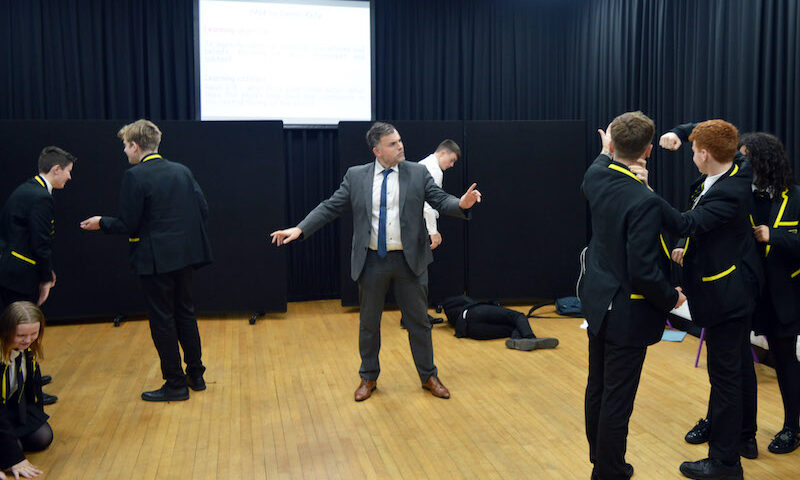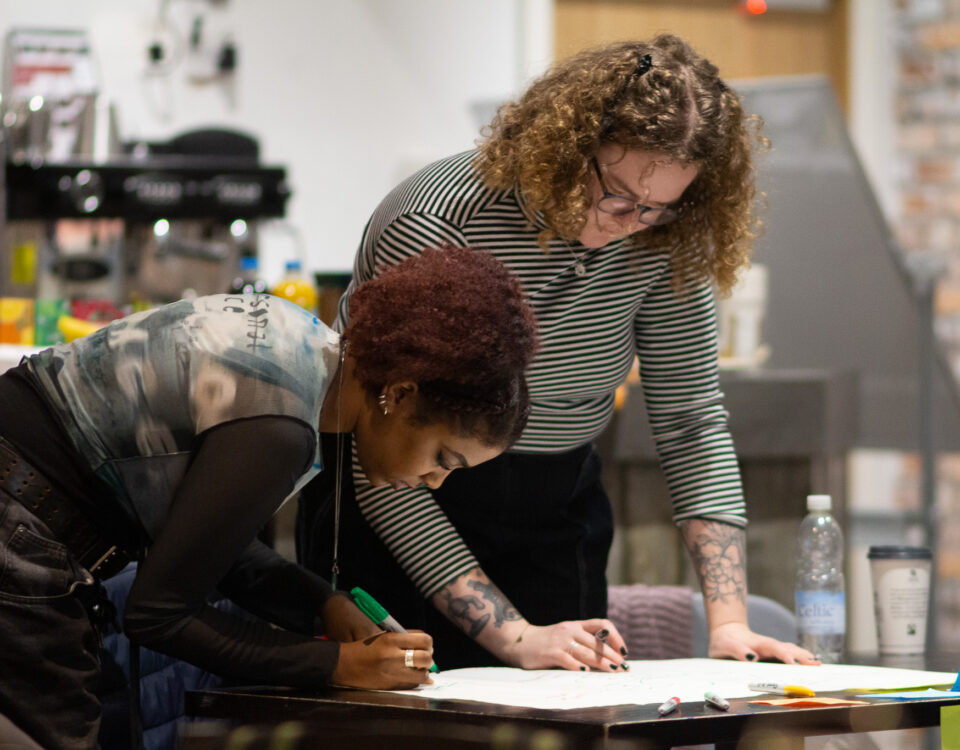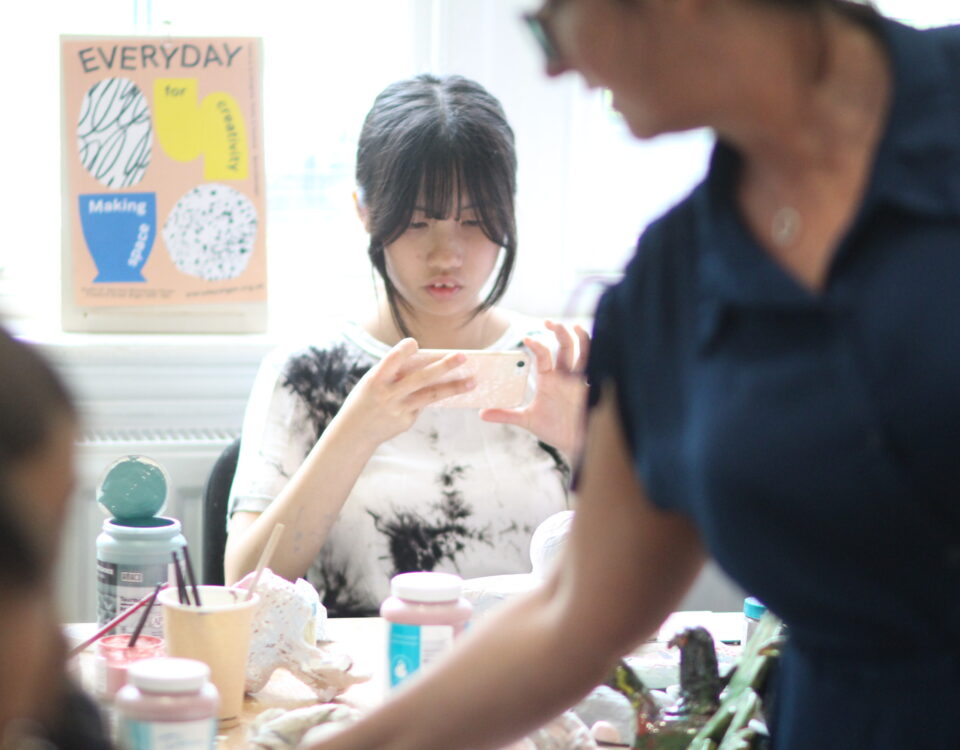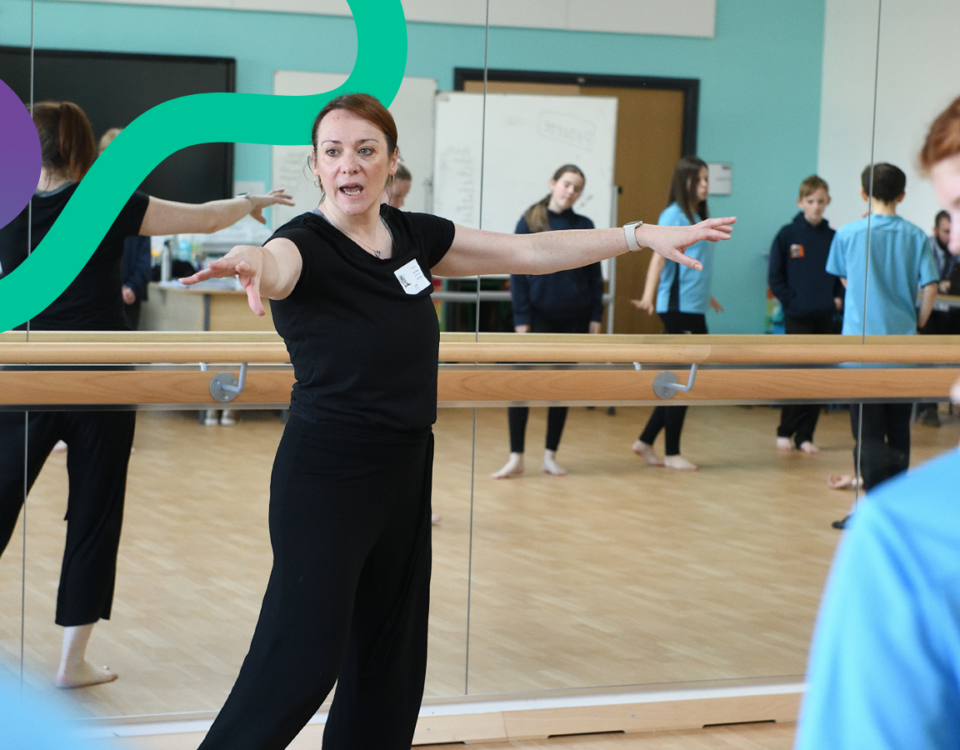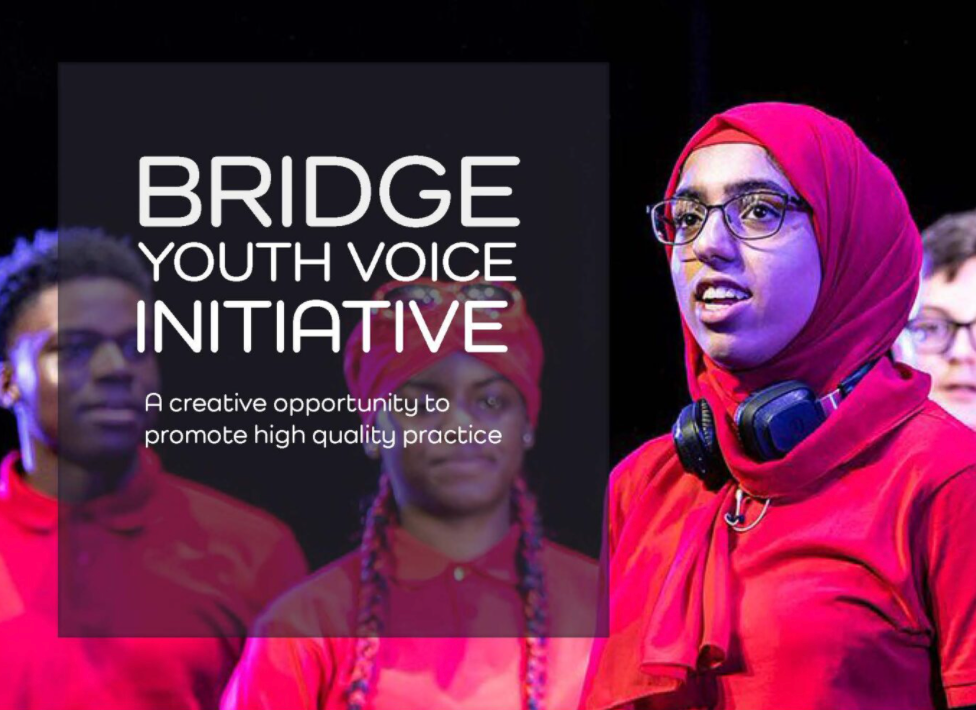
Call To Tender – Bridge Youth Voice Initiative
October 22, 2020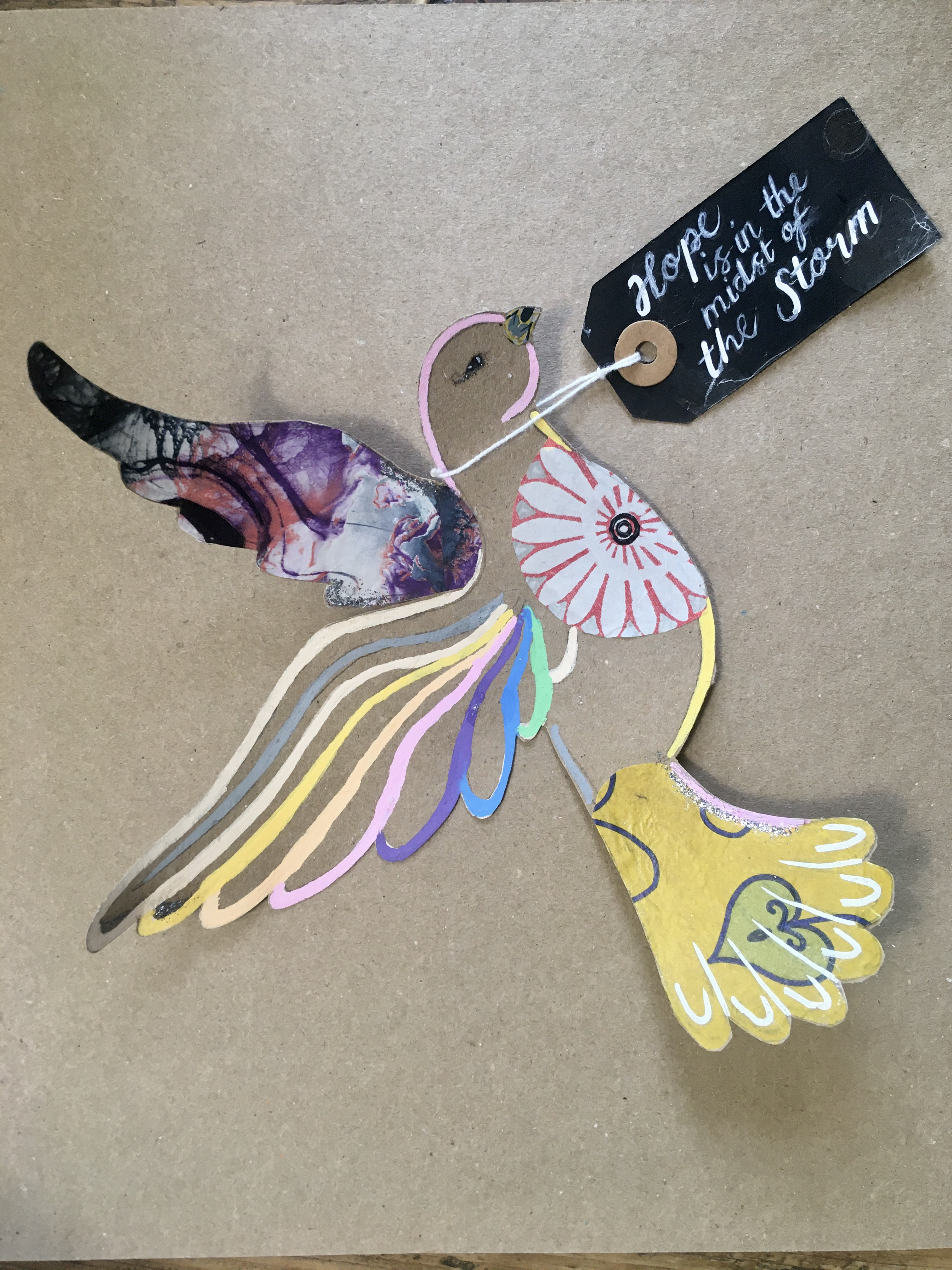
Hope and wellbeing in Lockdown
November 13, 2020Drama despite the crisis
Matt King-Sayce, Head of Drama at Stockport Grammar School, shares his retrospective on leading the Arts in lockdown
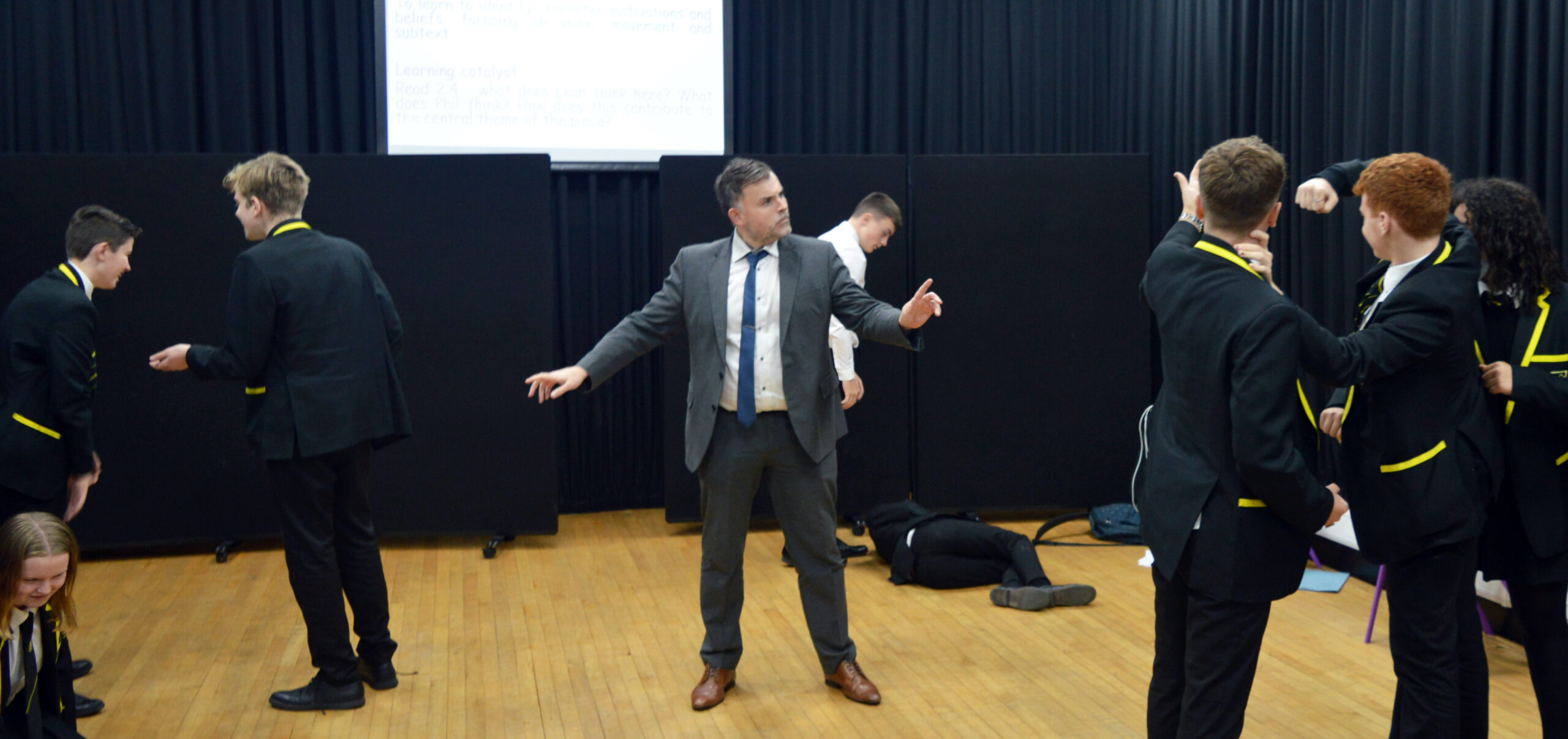
“I think you’re on mute!”
This has got to be the most over-used phrase of recent months. Lockdown has dealt us all a raw deal and will potentially have significant and long-lasting implications on the arts and culture sector. As a teacher and arts leader at my school, the past few months have been particularly challenging, but there have been numerous opportunities and positive which would not have emerged otherwise.
Let me take you back to March 2020. It had been a busy year – just over halfway through my first year at a new school. One production down and a few days away from about 150 students performing in the school musical. Then, lockdown happened and everything I had been building seemingly crumbled... ‘Chicago’ was cancelled, theatre visits postponed indefinitely, theatre-in-education pieces I’d been working on with students to take to primary schools were abandoned, and our Artsmark journey seemingly ground to an abrupt halt!
As a Drama teacher, the mere prospect of teaching remotely was daunting; not simply because practical work became considerably more difficult and would have to be undertaken by students independently at home, but because we had no real idea how long lockdown would last. So we needed to ensure lessons were meaningful and engaging, as opposed to a filler to pass the time until we could get back into a classroom to do some ‘proper’ Drama.
Different schools dealt with teaching and learning during lockdown differently. From speaking to colleagues throughout the UK, in both state and independent schools, there was a notable disparity between what teachers were being asked to do. Some teachers sending work home for pupils periodically, without the expectation that this work would be followed up or marked, whereas other teachers had to navigate the daunting world of technology to deliver every class online. I was in the latter group. We were tasked with posting work on Satchel One and using Google Meets to deliver lessons. I’m sure I won’t cause offence by saying that, in all my teaching experience and in all the schools I’ve worked with, technology and Drama teaching are not established bedfellows. Without any formal training, I had to up-skill considerably…and fast.
This has got to be the most over-used phrase of recent months. Lockdown has dealt us all a raw deal and will potentially have significant and long-lasting implications on the arts and culture sector. As a teacher and arts leader at my school, the past few months have been particularly challenging, but there have been numerous opportunities and positive which would not have emerged otherwise.
Let me take you back to March 2020. It had been a busy year – just over halfway through my first year at a new school. One production down and a few days away from about 150 students performing in the school musical. Then, lockdown happened and everything I had been building seemingly crumbled... ‘Chicago’ was cancelled, theatre visits postponed indefinitely, theatre-in-education pieces I’d been working on with students to take to primary schools were abandoned, and our Artsmark journey seemingly ground to an abrupt halt!
As a Drama teacher, the mere prospect of teaching remotely was daunting; not simply because practical work became considerably more difficult and would have to be undertaken by students independently at home, but because we had no real idea how long lockdown would last. So we needed to ensure lessons were meaningful and engaging, as opposed to a filler to pass the time until we could get back into a classroom to do some ‘proper’ Drama.
Different schools dealt with teaching and learning during lockdown differently. From speaking to colleagues throughout the UK, in both state and independent schools, there was a notable disparity between what teachers were being asked to do. Some teachers sending work home for pupils periodically, without the expectation that this work would be followed up or marked, whereas other teachers had to navigate the daunting world of technology to deliver every class online. I was in the latter group. We were tasked with posting work on Satchel One and using Google Meets to deliver lessons. I’m sure I won’t cause offence by saying that, in all my teaching experience and in all the schools I’ve worked with, technology and Drama teaching are not established bedfellows. Without any formal training, I had to up-skill considerably…and fast.
“’Im sure I won’t cause offence by saying that, in all my teaching experience and in all the schools I’ve worked with, technology and Drama teaching are not established bedfellows.”

Matt King-Sayce
Practical group work had to take a backseat and independent tasks became the order of the day. Teaching theory and exam technique to exam classes was possibly the easiest bit, by way of producing exemplars and recording step-by-step audio PowerPoints. This has a double benefit, as I now have a really clear and effective revision package which I have since shared with colleagues from other schools around the world.
My biggest challenge was making learning relevant and engaging. Younger students were set tasks such as reading play scripts, responding to questions and designing sets and costume - which then became more diverse and experimental as lockdown continued, including prop making and recording and uploading performances of monologues.
Luckily, the National Theatre and Digital Theatre + made their resources free to use for a period during lockdown, which meant students could watch live performances, albeit pre-recorded. In my opinion, part of the job of an arts teacher is to expose students to experiences they would not normally have outside school, so this opportunity to engage students was a big win. It also energised lessons, with students wanting to discuss what they’d seen and ask questions. There were, of course, harder to reach students - including those who were struggling with access to or ability to use technology, as well as students who perhaps didn’t have the ability or the motivation to organise their time to study and submit tasks. Marking of work also became more challenging and, in a subject which relies on oracy to provide immediate feedback, being able to share meaningful and actionable feedback in writing became crucial.
Because students rejected using Google Classroom, I found myself creating a rather time-consuming way of providing specific written feedback via the comment boxes on Satchel One. Of course, Google Meets came with their own challenges; especially in terms of internet connectivity and the fact that many students chose to leave their cameras off and microphones muted. This frequently resulted in a bizarre situation of talking to black boxes on a computer screen wondering if anybody was actually there!
My biggest challenge was making learning relevant and engaging. Younger students were set tasks such as reading play scripts, responding to questions and designing sets and costume - which then became more diverse and experimental as lockdown continued, including prop making and recording and uploading performances of monologues.
Luckily, the National Theatre and Digital Theatre + made their resources free to use for a period during lockdown, which meant students could watch live performances, albeit pre-recorded. In my opinion, part of the job of an arts teacher is to expose students to experiences they would not normally have outside school, so this opportunity to engage students was a big win. It also energised lessons, with students wanting to discuss what they’d seen and ask questions. There were, of course, harder to reach students - including those who were struggling with access to or ability to use technology, as well as students who perhaps didn’t have the ability or the motivation to organise their time to study and submit tasks. Marking of work also became more challenging and, in a subject which relies on oracy to provide immediate feedback, being able to share meaningful and actionable feedback in writing became crucial.
Because students rejected using Google Classroom, I found myself creating a rather time-consuming way of providing specific written feedback via the comment boxes on Satchel One. Of course, Google Meets came with their own challenges; especially in terms of internet connectivity and the fact that many students chose to leave their cameras off and microphones muted. This frequently resulted in a bizarre situation of talking to black boxes on a computer screen wondering if anybody was actually there!
“There's no doubt that lockdown was a challenging time, but it also forced us to move education in the direction it was already heading at a much faster pace. We used technology in new and exciting ways, engaged in networks and partnerships that we perhaps would not have done otherwise, and developed banks of resources that will be relevant and useful for students for years to come”
Instead of being engrossed in negativity, I used my time during lockdown to be proactive and continue to build on the partnerships I had created before this time. I found myself being part of a focus group with the Royal Exchange Theatre in Manchester, where we discussed possibilities for live and streamed theatre performances during lockdown and beyond. I also continued to work towards my school achieving Artsmark and on developing the school's Local Cultural Education Partnership (LCEP). I worked alongside Curious Minds to support local schools and colleges and planned projects that will enable us to give our students new and exciting opportunities. I found myself reaching out to virtual communities, to share ideas and resources, which led to me becoming a mentor for the delivery of GCSE and A Level Drama via Facebook.
In addition to this, I was given the opportunity to work beyond my role at my school and lead groups of school leaders from around the world as we discussed how to engage and support staff through these challenging times (and beyond) by adopting a 2% mindset.
I think my school was incredibly positive and proactive in its response to promoting the arts throughout our student body and the wider community. For example, we held our GCSE and A Level Art exhibitions virtually and produced a glossy brochure. Live music performances were recorded and streamed, and extra-curricular clubs continued to engage with students, enabling them to proudly share their lockdown work through the school’s website and Twitter accounts. There's no doubt that lockdown was a challenging time, but it also forced us to move education in the direction it was already heading at a much faster pace. We used technology in new and exciting ways, engaged in networks and partnerships that we perhaps would not have done otherwise, and developed banks of resources that will be relevant and useful for students for years to come.
It came as a hugely welcome opportunity when GCSE and A Level students were able to return to school in June. I took this opportunity to re-engage them in completing and filming their devised pieces of theatre - working with them in a way that is close to the way I have worked for nearly 20 years. The reason I have left this until the end is because it brought to my attention the effect that lockdown has had on students’ mental health and well-being. From conversations I’ve had with other arts leaders since returning to full-time teaching in September, this issue appears to be most prominent and yet problematic in schools. After so many years of being side-lined for not being EBacc subjects, or not being ‘academic’ enough, or supposedly not being accepted by redbrick universities, now is the time that the arts need to lead the way to help teachers to work to find creative ways of teaching and to support students to develop their ability to express themselves and develop their levels of mindfulness and resilience as we all navigate this ‘new normal’.
In addition to this, I was given the opportunity to work beyond my role at my school and lead groups of school leaders from around the world as we discussed how to engage and support staff through these challenging times (and beyond) by adopting a 2% mindset.
I think my school was incredibly positive and proactive in its response to promoting the arts throughout our student body and the wider community. For example, we held our GCSE and A Level Art exhibitions virtually and produced a glossy brochure. Live music performances were recorded and streamed, and extra-curricular clubs continued to engage with students, enabling them to proudly share their lockdown work through the school’s website and Twitter accounts. There's no doubt that lockdown was a challenging time, but it also forced us to move education in the direction it was already heading at a much faster pace. We used technology in new and exciting ways, engaged in networks and partnerships that we perhaps would not have done otherwise, and developed banks of resources that will be relevant and useful for students for years to come.
It came as a hugely welcome opportunity when GCSE and A Level students were able to return to school in June. I took this opportunity to re-engage them in completing and filming their devised pieces of theatre - working with them in a way that is close to the way I have worked for nearly 20 years. The reason I have left this until the end is because it brought to my attention the effect that lockdown has had on students’ mental health and well-being. From conversations I’ve had with other arts leaders since returning to full-time teaching in September, this issue appears to be most prominent and yet problematic in schools. After so many years of being side-lined for not being EBacc subjects, or not being ‘academic’ enough, or supposedly not being accepted by redbrick universities, now is the time that the arts need to lead the way to help teachers to work to find creative ways of teaching and to support students to develop their ability to express themselves and develop their levels of mindfulness and resilience as we all navigate this ‘new normal’.

